“We have no Rockefellers or Carnegies, but we do have co-operatives.”
Edited on
03 July 2019The Fear Factor
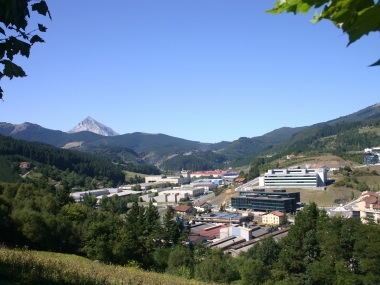
“The only thing we have to fear is fear itself”. These famous words, uttered on an icy January afternoon in 1933 during Franklin Roosevelt’s inaugural address, continue to resonate 85 years later. In Europe’s cities today, they carry particular weight, as the pessimism barometer seems to rise inexorably.
Roosevelt issued his rallying call at a time when the US – and indeed the global economy – seemed on the brink of collapse. The incoming President assumed office at an inauspicious time, with one in four Americans out of work. Today, in footballing terms, we might call it a ‘hospital pass’ – a very unwelcome gift. Of course, FDR, advised by the best brains in the country, had ambitious plans to put America back to work – what he would refer to as the New Deal. But he knew that while those plans took shape, he would have to address the psychological damage inflicted by the Great Depression. Overcoming the fear that gripped the country was the first step to stabilization – and to staving off the extremists.
Today in Europe, fear is all around us. People are afraid that their jobs will disappear – taken over by robots, undercut by migrants or outsourced to parts of the world where labour is cheaper. They worry that the welfare state will have disappeared by the time they retire and that they will no longer be able to live in their neighbourhoods as property prices rise and our great cities become the preserve of the rich. Worst of all, they fear that their children’s lives will be worse than theirs, corroding the most valuable commodity – hope.
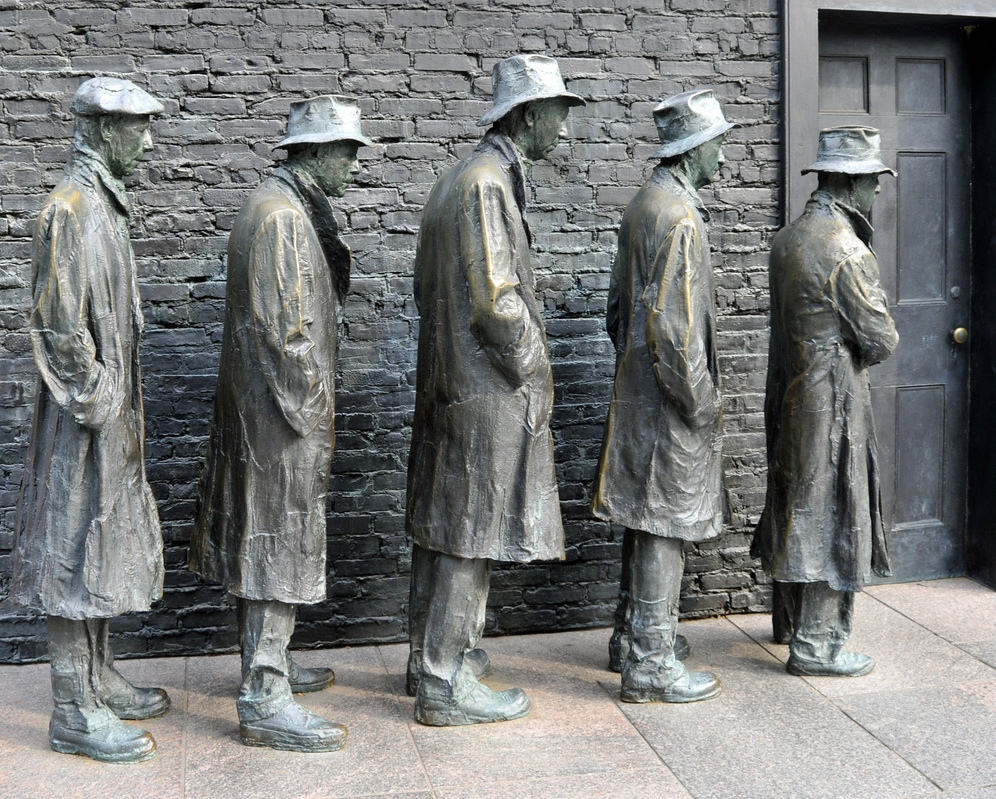 Fear and uncertainty are happy hunting grounds for scaremongers. We have already experienced this with BREXIT and the rise of Trump. Within mainland Europe we also see it in those Member States building walls and rewriting history. Facts are not allowed to get in the way of these new populist narratives.
Fear and uncertainty are happy hunting grounds for scaremongers. We have already experienced this with BREXIT and the rise of Trump. Within mainland Europe we also see it in those Member States building walls and rewriting history. Facts are not allowed to get in the way of these new populist narratives.
Our cities ignore these developments at their peril. Although fear can be irrational, the root causes – concerns about life’s fundamentals; home; food; work – require us all to sit up and take note. In the face of this challenge, how can our cities respond?
The Future is already here
It’s too early to state with any certainty the patterns that will define the 21st Century; however some early distinctions seem evident. One is the decline of ‘systemic’ solutions – the so-called ‘isms’ of the 20th Century (Socialism, Fascism, Communism etc) – for more pragmatic alternatives. Another is the rebalancing of power between nation states and cities. Mayors may not rule the world just yet, but the trend of devolution towards regional and metropolitan solutions continues. As Bruce Katz of the Brookings Institution noted in a recent interview:
“I would say that there has been a de facto memo sent out by the national government and most states to city-regions and counties: you are in charge of the future. You, literally, are going to need to figure out how to fund those things, those activities — whether it’s innovation, whether it’s infrastructure, whether it’s inclusion — that really set the platform for growth, prosperity, and equity. That the nation-state really had become sclerotic and non-entrepreneurial. It lacks the discretion and the agility to adapt to what is fast-changing societal challenges and fast-changing technological disruption.”
Although this process of renegotiation will not happen overnight, in some places it’s well under way. As William Gibson once noted: “The future is already here – it’s just not very evenly distributed.” Where it is here, cities are looking to address the existential issues we face. As well as climate change, this means ensuring that all citizens have enough to address their basic human needs. In line with the New Urban Agenda, this means tackling poverty, UN Habitat’s first Sustainable Development Goal (SDG). Shameful but true, that in 21st Century Europe we still face such basic challenges.
Within URBACT, cities are bringing fresh thinking and innovative policies to these age-old challenges. Amongst these is the rethinking of welfare, driven by a combination of conclusions. One is in anticipation of a future where there may be fewer or different type of jobs as a result of automation. Another is the recognition that despite millions of euros invested in improving the infrastructure of our most deprived neighbourhoods, the most vulnerable in society often remain unaffected. Too often, displacement and gentrification have been the result.
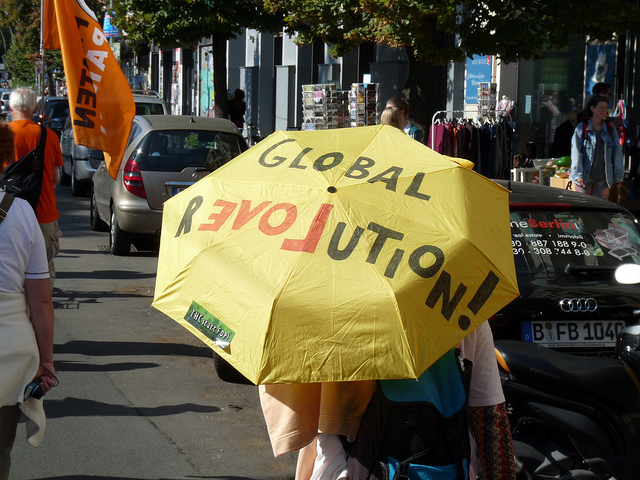 The wave of activity around the Universal basic Income (UBI) reflects this need for new thinking. It acknowledges the need for a safety net when levels of precariousness are rising. In it’s purest form, UBI provides a flat payment to every citizen. It places recipients under no obligation to undertake tasks in exchange for payment and so is what economists’ term, unconditional.
The wave of activity around the Universal basic Income (UBI) reflects this need for new thinking. It acknowledges the need for a safety net when levels of precariousness are rising. In it’s purest form, UBI provides a flat payment to every citizen. It places recipients under no obligation to undertake tasks in exchange for payment and so is what economists’ term, unconditional.
UBI is radical and divisive. It is loved and hated by sections of the old ‘Left’ and “Right’ in equal measure. Currently, variations of the model are being piloted globally, most notably in Finland, the Netherlands and, later in 2018, Scotland. As part of the URBACT Urbinclusion network– as well as through Urban Innovative Actions Barcelona is developing its own approach to this challenge. Targeting two of the city’s poorest barrios, the Catalan capital is testing a Minimum Income model, providing citizens with a guaranteed minimum level of income, to ensure they are above the poverty line. In this case however, receipt of support is conditional upon beneficiaries agreeing to give back to the community, for example in the form of volunteering.
Lifting the lid on the new world of work
Looking ahead, to what a meaningful life will be in 21st century urban Europe, many see civic participation as part of the story. In a digital world of different jobs and rising social isolation compassionate action may, in the words of George Monbiot, give people “what work once promised: meaning, purpose, place, community.”
Certainly, mobilizing active citizenship is a common factor to those cities looking to promote more cohesive communities, which we can see through URBACT networks like CHANGE! Again, this policy discussion touches upon the Future of Work debate, whilst connecting to other fundamental issues, most notably the need to reinvigorate democracy and to address the growing epidemic of urban loneliness and isolation.
But although paid work may play a less important role in future, it remains a pressing and immediate policy priority right now. This is where we desperately need innovative solutions.
Today, many Europeans remain unemployed, particularly young people in the South. Ten years on from the Global Financial Crisis, the most recent EU data indicates that in Greece the 2017 youth unemployment rate was 41%, in Spain 37% and in Italy 32%.
However, it is not just the unemployed who are poor. In work poverty affects 8% of the working age population in OECD countries. The scale of the informal economy, the rise of the Gig Economy and the seasonal nature of sectors like tourism, mean that increasing numbers in work lead precarious lives. There is extensive evidence that in many parts of Europe wage rates have not recovered from the 2008 crash. OECD analysis showed that in the Czech Republic, Estonia, Latvia and the United Kingdom in 2015, hourly wages were 25% below what they should have been if normal wage growth had continued. For Hungary, Greece and Ireland the gap was over 20%. Only Germany bucked this depressing trend.
Meanwhile, the growing disparity between those at the top and those at the bottom of the employment chain fuels the sense amongst ordinary workers that no one is fighting their corner and that inequality is inevitable. On average, the 10% wealthiest households hold half of total wealth in the OECD countries; the next richest 50% hold almost the entire other half, while the 40 % least wealthy own little over 3%.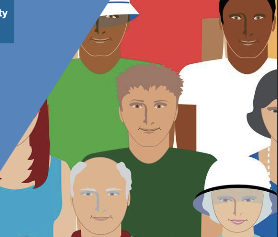
In the UK, calculations by the GMB Trade Union to mark the twentieth anniversary of the introduction of the Minimum Wage showed that the salary of top executives had increased by 354% to an average of UK£4.35 million per annum. In this same period the minimum wage had risen by £7.50 per hour. And of course there is a gender dimension to this unequal state of affairs, with women in the EU earning on average 16% less per hour than their male counterparts.
These structural inequalities undermine citizens’ trust in our institutions. They exacerbate the sense of frustration with policy makers and, ultimately, create a climate that can be manipulated by those wishing to destroy the cohesive urban model which, for many, represents the best of Europe.
A mix of old and new
Again, the question comes: what can cities do? Part of the solution is adopting agile responses to the new challenges created by the digital economy. For example, municipalities can regulate to mitigate the potential damage caused by the extractive platform business models. Many cities have already taken steps to limit the damage caused by the major players such as Uber and Airbnb. They are also exploring how these new technologies can be harnessed for good.
But as well as developing new responses, sometimes we need to pay attention to familiar concepts that might have a new found relevance. Like those who champion UBI as an old idea whose time has come, growing numbers of cities are turning to another long-standing model as an effective tool to tackle growing inequalities in the workplace – the Co operative business.
The concept of the co-operative business, as we recognize it, dates back to the north of England in the mid 19th century. Behind it, is the basic idea that workers own the business in which they work. More recently, another version has emerged where the cooperative business is owned by its customers – as is the case with many food coops. Emerging during the early industrial revolution, cooperatives evolved alongside the growing organisation of the industrial working class. Forged by tight-knot mutually supporting communities, the model spread around the globe.
Fast forward to 2018 and cooperatives remain alive and well in Europe. We find them throughout the EU, with deep roots in particular regions. One of the best known of these is in the Mondragon Valley in the Basque Country. From humble beginnings in 1956, the Mondragon Corporation has expanded into a business comprising 261 companies employing almost 75,000 worldwide. Operating an annual turnover of €12 billion per year, much of Mondragon’s production revolves around high quality manufactured goods. Despite its growth, the group remains wedded to an established code of cooperative principles which include:
· Open admission
· Democratic organisation
· Participatory management
· 1 to 7 payment ratio, and
· Inter-solidarity mechanisms
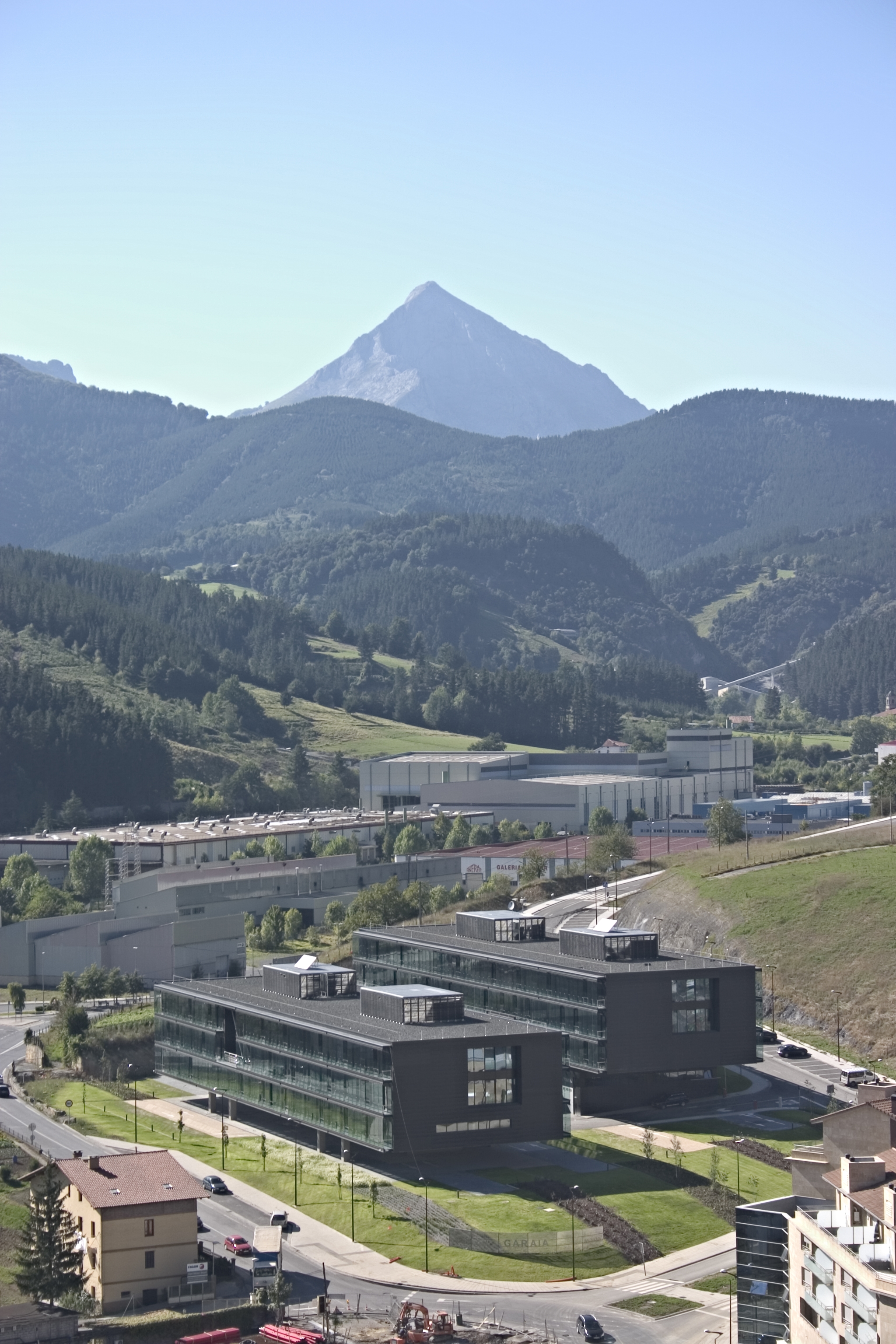 The Mondragon Valley, comprising a cluster of small municipal authorities, provides an example of how an innovative ecosystem can cover a territory comprising sub-urban and rural communities. On every level, cooperation is at its heart: cooperation between public and private sector, between businesses, voluntary sector, academia and between communities. This valley presents extraordinary indicators in relation with GDP per capita, but also secondary and university education, life expectancy, poverty and equality.
The Mondragon Valley, comprising a cluster of small municipal authorities, provides an example of how an innovative ecosystem can cover a territory comprising sub-urban and rural communities. On every level, cooperation is at its heart: cooperation between public and private sector, between businesses, voluntary sector, academia and between communities. This valley presents extraordinary indicators in relation with GDP per capita, but also secondary and university education, life expectancy, poverty and equality.
Mondragon is a structure which is constantly evolving and reinventing itself. As it does so, it generates a need for new products and services that are met by the start up of new cooperative businesses. So, as well as servicing external customers, within the group there is a strong internal market where cooperatives buy and sell from one another. They collaborate and compete with each other at the same time and there is no central command. This continuous and distributed innovation system generates resilience. It is one of the distinctive features driving the business that should be better understood for other social business to operate at scale. For many, Mondragon needs to be interpreted as a social innovation ecosystem that is reinventing the rationale and methods of social transformation movements in the context of Industry 4.0 competitiveness strategies.
Another is the quality of life offered by working for the Mondragon Group. In many other businesses of this scale, the CEO will earn many multiples of the salary of their regular employees. In a Mondragon Cooperative, typically the CEO will earn no more than seven times the salary of a shop floor employee. Perhaps even more importantly, all employees will take lunch in the same staff canteen, reinforcing the sense of solidarity and social connection. Equality makes Mondragon more competitive.
The value of cooperatives in such communities although distinctive in the Basque country is not unique. Parts of Italy – in particular Emilia Romagna – have long been established as centres of cooperative business activity, particularly in sectors including furniture and food production. A recent investigation into Finnish cooperatives reported that this small country has more cooperative members (5.4 million) than its entire population. The article quotes Finnish Nobel Prize winner A. I. Vertanen noting that:
“We have no Rockefellers or Carnegies, but we do have co-operatives.”
At a time when an interest in workplace democracy and tackling economic inequality is rising, there is a renewed interest in cooperatives as being part of the solution. As businesses they generate jobs. As principled businesses they seek to create meaningful employment, giving workers a say in the running of the operation. As equitable organisations they strive to tackle the gap between the highest and lowest paid, offering employees a genuine stake in their own destiny and the organization’s future. What we see in places like the Mondragon Valley is a large-scale manifestation of the European Commission´s commitment towards inclusive growth, a principled business model firmly rooted within the local community.
 One of the 97 URBACT Good Practices reflects this growing interest amongst cities in supporting cooperative businesses. Cooperative City, Glasgow, is an example of a municipality reinventing how it engages with citizens to design and redevelop services. The principle of co-design is at the heart of this transformation. The model includes the establishment of new platforms to collaborate with citizens and local organisations. It also includes a financial package to support the development of cooperatives.
One of the 97 URBACT Good Practices reflects this growing interest amongst cities in supporting cooperative businesses. Cooperative City, Glasgow, is an example of a municipality reinventing how it engages with citizens to design and redevelop services. The principle of co-design is at the heart of this transformation. The model includes the establishment of new platforms to collaborate with citizens and local organisations. It also includes a financial package to support the development of cooperatives.
The aim of the Cooperative Business Development Fund is to provide financial and structural support for the establishment of cooperatives, mutual and social enterprises. The support package is cross-sectoral and to date it has invested over €7,700,000 in new enterprises, through 56 awards. This has created or safeguarded over 325 jobs and volunteer positions.
A glimpse of the good future?
What can cities take from this? For sure, a greater sense of responsibility and a green light to find their own solutions. Alongside that, a clear message that they are not alone. Across Europe, sister cities are keen to share and explore together, through URBACT and other channels. Finally, in the confusing rush of the New, lets not overlook potential solutions that may already be familiar – like Cooperatives. As Victor Hugo pointed out: “There is nothing so powerful as an idea whose time has come.”
Gorka Espiau & Eddy Adams
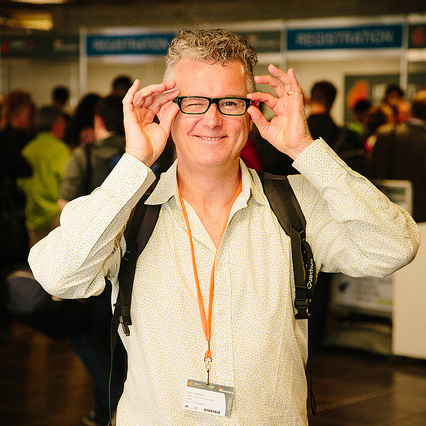 Submitted by Eddy Adams on
Submitted by Eddy Adams on




